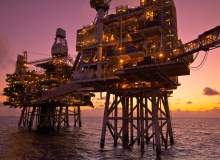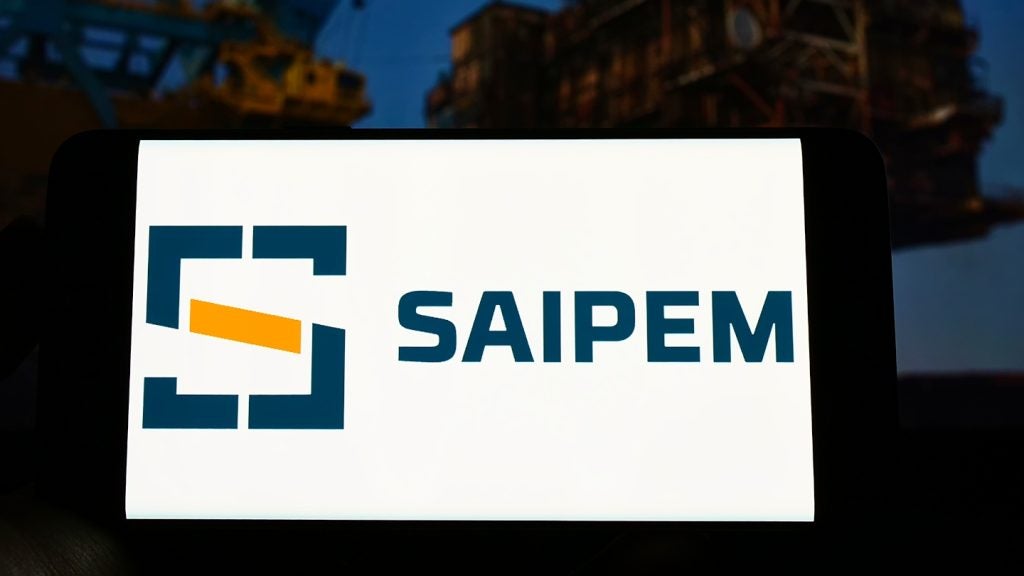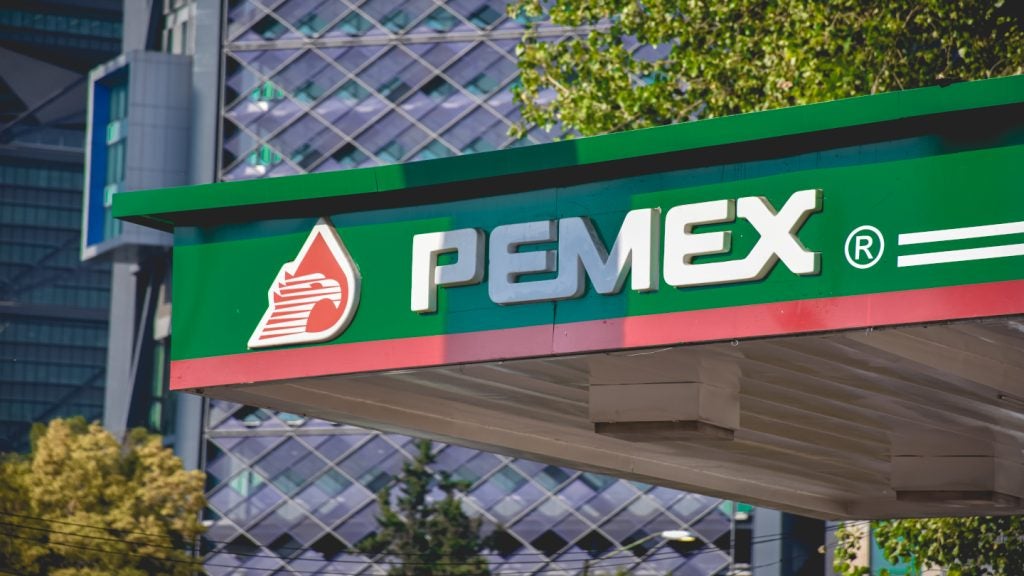

Eighteen months and counting of record low oil prices have thrown the UK North Sea oil industry into turmoil. Job losses are being announced thick and fast as operators struggle to deal with a 70% drop in revenue while still needing to maintain the North Sea’s ageing infrastructure in one of the most hostile environments in the world.
Academics and industry bodies warn that a lack of industry investment will result in the frontier never reaching its full potential of between 12 billion and 24 billion barrels of oil. A recent report by consultants Wood Mackenzie stated that industry has delayed almost $400bn of investment in the North Sea, a halt in spending that has hit service companies and rig operators hard.
With no respite from a rise in oil prices expected at present – BP boss Bob Dudley recently told journalists a $10 oil price ‘was not impossible’ – finding cost savings and improving productivity is as urgent as ever.
For nine months Amec Foster Wheeler (AMF) and Total Exploration and Production UK, funded by the industry and UK Government initiative the UK Technology Leadership Board (TLB), have been examining ways to make positive changes. The project focuses on three core areas – standardisation of technology and introducing repeatability in regards to construction; ways to commercially develop untapped resources of small hydrocarbon pools; and improving asset integrity and longevity.
According to a press release, the initiative hopes to ‘unlock’ £1bn of additional revenue, but is this really achievable in the current economic climate?
How well do you really know your competitors?
Access the most comprehensive Company Profiles on the market, powered by GlobalData. Save hours of research. Gain competitive edge.

Thank you!
Your download email will arrive shortly
Not ready to buy yet? Download a free sample
We are confident about the unique quality of our Company Profiles. However, we want you to make the most beneficial decision for your business, so we offer a free sample that you can download by submitting the below form
By GlobalData"It’s a really difficult question to answer because in the current volatile market of the oil price, what does that mean?" says Andy Ewens, director of operations at AMF, who also sits on the UK Technology Leadership Board.
He says it is not a number put forward by AMF but by the head of technology at the UK Oil and Gas Authority at Offshore Europe last year.
"Our expectation is, and it’s an expectation more than a hope, is some of the technology we are looking to transfer from other sectors, we will be able to find ways of applying them and actually demonstrate tangible results in 2016," Ewens says. "By then we want to be able to say we have done something that has had a positive impact and is contributing towards efficiency savings."
Learning from others
The first phase of the project will map out all the existing technologies and companies involved in the areas of maintenance and inspection.
This includes technologies from other sectors. Not only does technology transfer from other sectors save time and money because the technology doesn’t have to be developed from scratch, but it is also easier to get industry to adopt the technology because it is already proven in other sectors "So we hope we will overcome some barriers [to adoption] that there might be," says Ewens.
Industries of interest include the nuclear sector for its use of robotics for inspection in areas where it is not possible to send humans, and defence for technologies such as drones and unattended vehicles. Also, the aerospace industry is of interest for its technologies used for dealing with aggressive environments, and for the IT sector to help handle data.
One key industry is the automotive industry, which in the past has faced its own challenges similar to North Sea oil. Once on the brink of extinction, the UK automotive industry is now one of the leading manufacturers of cars in Europe.
The industry’s transformation was due to standardisation of manufacturing processes, such as using one platform for multiple cars, says Professor Paul de Leeuw, director of Robert Gordon University’s Oil and Gas Institute.
"They [the automotive industry] have basically taken a leading edge approach to manufacturing, skills and standardisation," he adds.
"If you look at the North Sea every platform is different, every well is different – why can’t we standardise? Why can’t we take the approach of adopting a common way of working?"
Standardisation
In regards to standardisation, the TLB initiative is looking at ways to standardise handling of hydrocarbons downstream of the well and areas of supporting utility.
"One of the major costs associated with operating a facility in the sea is all the large support for the infrastructure that you need," explains Ewens.
"It’s those area that in the past have been designed on a bespoke basis, however there is a lot of potential for standardisation. These include standardising water purification methods and power generation – all of the kind of light support systems needed but which represent a significant amount of cost for an offshore facility."
But how can this be achieved and what does it require from the industry?
"It’s not necessarily about a groups of operators getting together and saying ‘we need to do something in this particular way’, it is more about saying to the supply chain ‘what is your recommended standardised approach to provide a particular service?’ Rather than operators have their own bespoke requirements, can they just take some of the standard products that are available from the supply chain?" says Ewens.
"Fundamentally, it needs flexibility in the way in which the operating companies approach the supply chain. Most of the operating companies acknowledge this."
However, Ewens concedes that for specific hydrocarbon handling there will be a need for bespoke designs as "There isn’t any way of getting away from that."
New wells
Standardisation could also help the development of the 200 so-called small ‘hydrocarbon pools’ that lie untapped beneath the UK North Sea because they are currently deemed not financially viable.
Developed altogether they could represent a "potential prize" says de Leeuw; however, industry needs to discover how to drill these wells cheaper.
"How do we go back to simplifying how we construct and drill wells? Can we find the mechanism to half the cost?" de Leeuw adds.
"If you can find a mechanism to develop small pools in a more efficient way, with more standardisation, cheaper development, you can produce well over a billion barrels of reserves. If everybody can develop these small pools in the same way you create a lower cost."
Research into the small hydrocarbon pools is being undertaken by another research group and led by an executive from British energy and services company Centrica. Ewens says the Technology Leadership Board will have a much clearer picture of what the landscape is in terms of where these pools are by the end of the year and are still in the process of identifying what technological challenges they need to overcome.
"The complexity is that you’re dealing with commercially sensitive information so needs to be more careful about how that information is shared," he adds.
Common problems, united approach
The final issue the initiative is tackling is the common problem associated with decades old infrastructure in extreme environments – corrosion.
Ewens says the aim is to be smarter so industry know when things will fall apart before they actually do. Operating efficiency in the North Sea has gone down significantly because of unplanned maintenance. As a lot of corrosion happens within insulation it often goes unseen.
"We need to have predictive ways of doing it and better technology to actually measure things faster," says Ewens.
It remains to be seen how much benefit this TBL-led research initiative will have on the ground of the industry and how much money it will save or see re-invested in the North Sea. Initial findings will be discussed at an industry workshop in February.
To further encourage reform and development of the North Sea Ewens wants to encourage the establishment of an oil and gas technology centre that will be ‘virtual’ at first, but eventually become a ‘conduit to towards providing technology development.’
"We think the government getting behind that would be very useful," he adds.
It’s clear that initiatives such as these, and this is not the first of its kind, are only one part of what those inside the industry say needs to be a united effort by industry and government.
"Companies have a choice where they put the very few investment dollars that they have left," he says. There are a lot of country’s saying ‘invest here’ – Iran is opening up, so is Mexico – we have to make sure we fight for every investment dollar to come to the North Sea if we want to stay in this space."
"That’s a role for industry but it’s also a role for government to make sure that fiscal structure makes the North Sea as attractive as possible."







